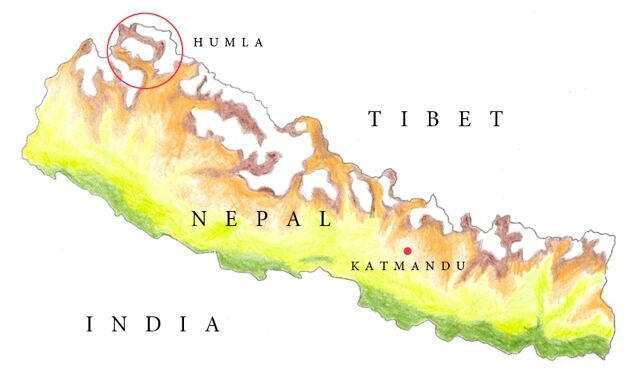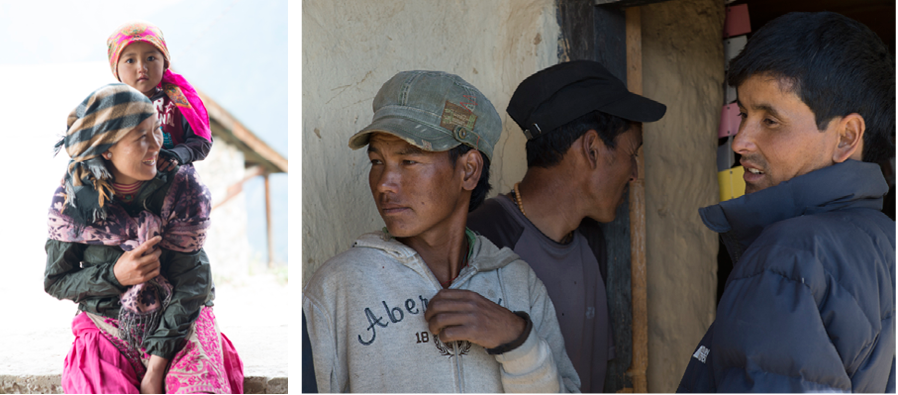


The Humla District is located in the northwestern region of Nepal in the sacred Himalayan mountain range bordering Tibet.
Secluded from modern life, Humla is one of Nepal's poorest and most remote districts. Simikot, the capital of the Humla District, is only accessible to other parts of Nepal by small aircraft that run when the weather allows. Most homes do not have electricity or running water.
The literacy rates are among the lowest in the country, and the closest hospital is a 2-4 day walk along steep mountain passes for most villagers. Due in part to this isolation, plus a decade-long civil war in Nepal (1996-2006), the Humli people confront severe challenges in accessing education and healthcare. Bonpos, or Bon Buddhist practitioners, and Buddhists of Tibetan origin inhabit the northern part of Humla. The Bon Buddhist culture, identity, and traditions are all at risk of extinction. Humla Fund is working to improve education and healthcare access and support the Bon cultural tradition.
BON
Bon is the indigenous, pre-Buddhist, spiritual and cultural tradition of Tibet, rooted in a rich shamanic healing tradition. Bon originated in the area of Mount Kailash and the surrounding regions of western Tibet.
In the late 7th century, Buddhism came to Tibet from India. During that transition, Bon faced difficulties, yet it survived with the help of great masters who buried and hid many Bon teaching resources. At that time, some of the Bon people migrated to the Humla region of Nepal. For centuries, Humla has been home to these Bon people, whose native language is Tibetan.
Bon includes teachings and practices applicable to all parts of life, including our relationship with nature and the development of our inherent qualities of love, wisdom, compassion, and joy for the benefit of all beings. The Bon teachings are from an unbroken lineage dating back thousands of years and continue up to the present day.
The Bon people believe these teachings are vital for humanity's future. While much in modern Bon is similar to Tibetan Buddhism, Bon retains the richness and flavor of its pre-Buddhist roots. We aim to preserve the Bon tradition and culture for the benefit of all future Humli generations.
